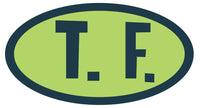
The poetry of Kenneth Patchen often makes reference to hobo songs and tales. Patchen is one of my favorite American poets. His poem, The Origins of Baseball, may be my favorite poem in the world. In it, one side of a hill is me killing other me walking home from the Civil War. On the other side of the hil, the first baseball game is being played. It is a marvelous and trancendent moment; a snapshot of an America caught between eras. We often forget that baseball (its invention routinely credited to military men) was thought to be a thing that would help heal the hatred accrued between the North and South.
Another byproduct of this awful war was the culture of people who came to be known as “hobos.” Widespread unemployment and newly homeless and restless men sought out the West and North for migrant and factory work. A great many of these men wound up in Chicago and New Orleans. It is no accident that one of the largest “hobo jungles” lined west Madison Street in Chicago and another lined the newly built levee system in New Orleans. An American subculture was born in the wake of the civil War complete with its own slang-infused jargon and pictogram alphabet scrawled on buildings and trestles all over our nation. It was a codified language spoken by the dispossessed of our country; a survival tool for hard times, not so much unlike now.
The itinerant is a long-standing figure in American art forms–musicians like Lead Belly and Woody Guthrie, Joe Hill and Boxcar Bertha–people who belong to nobody and to all of us at the same time. In New Orleans, the ghosts of these wandering spirits and their contemporary progeny are still around. This one is about them.
